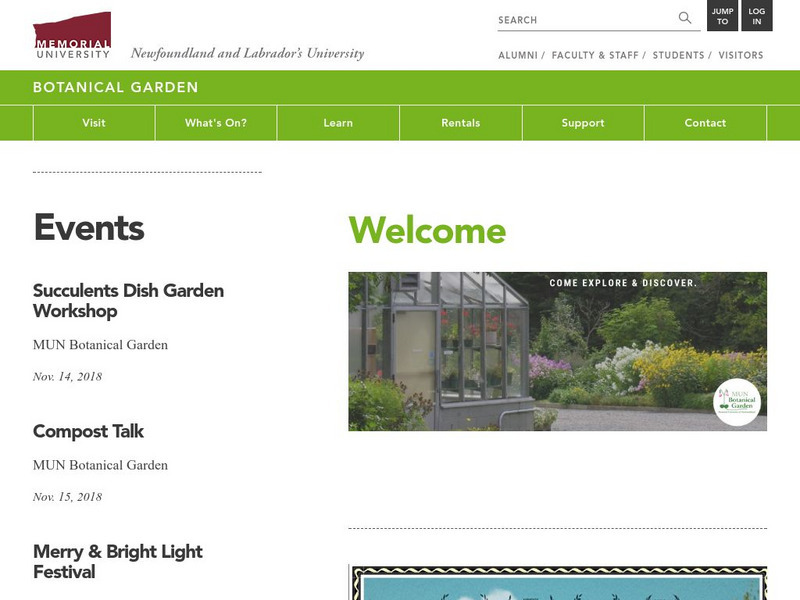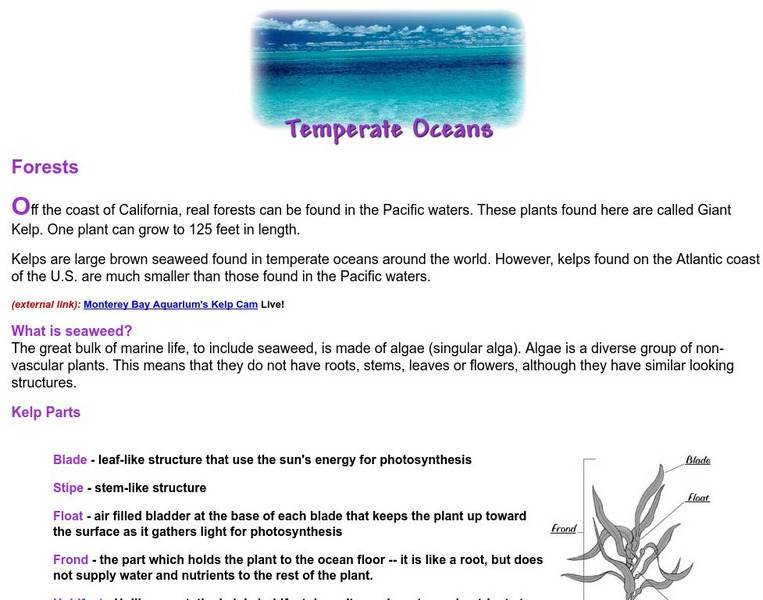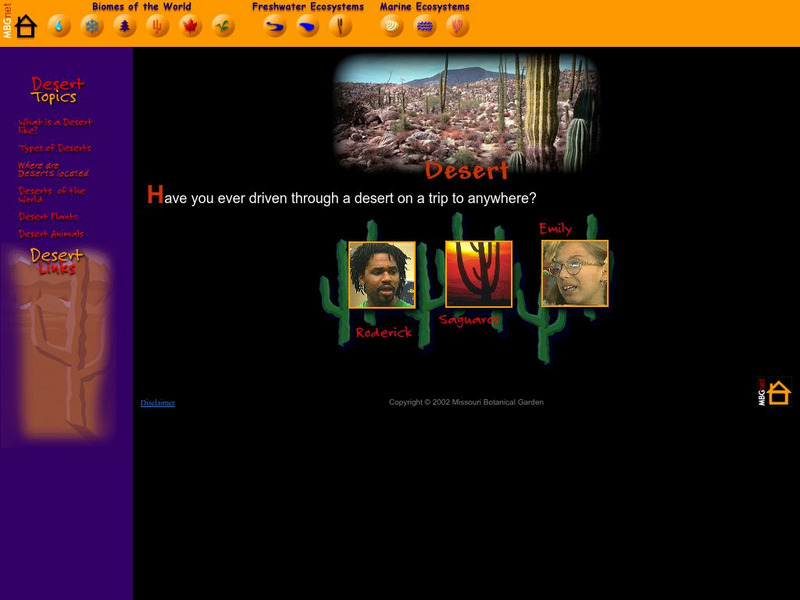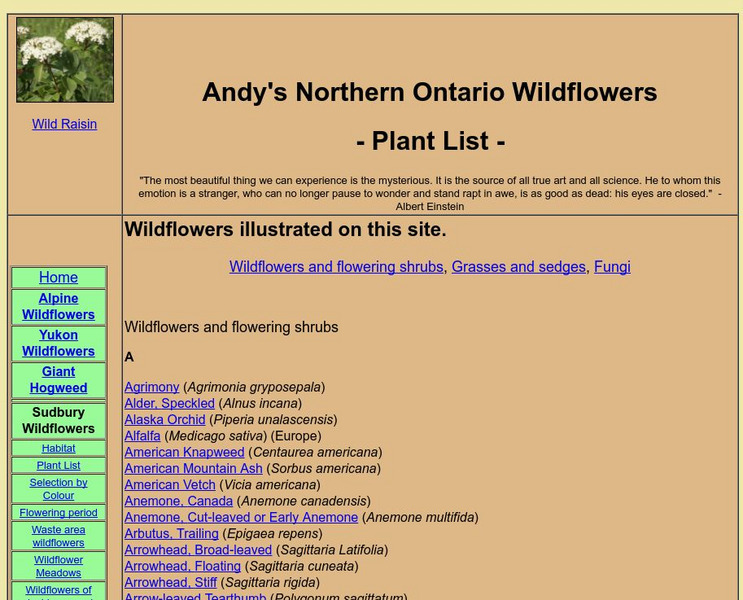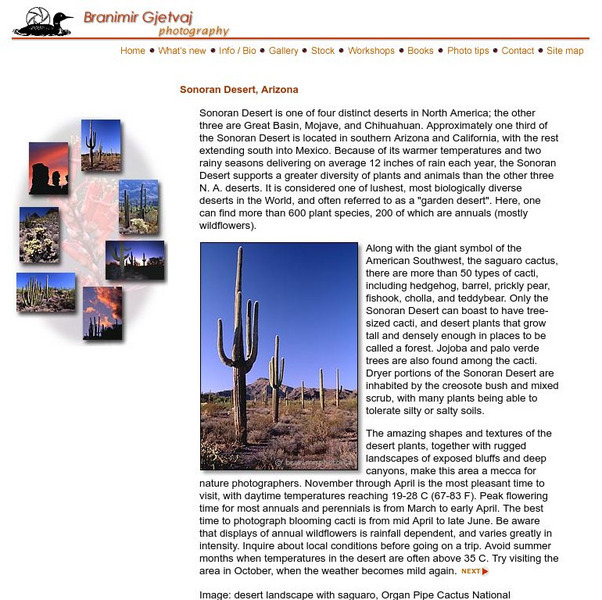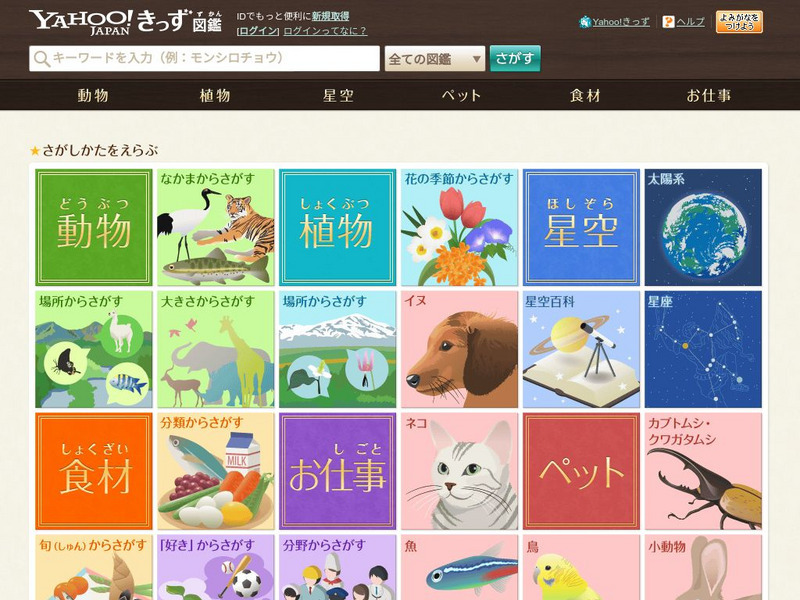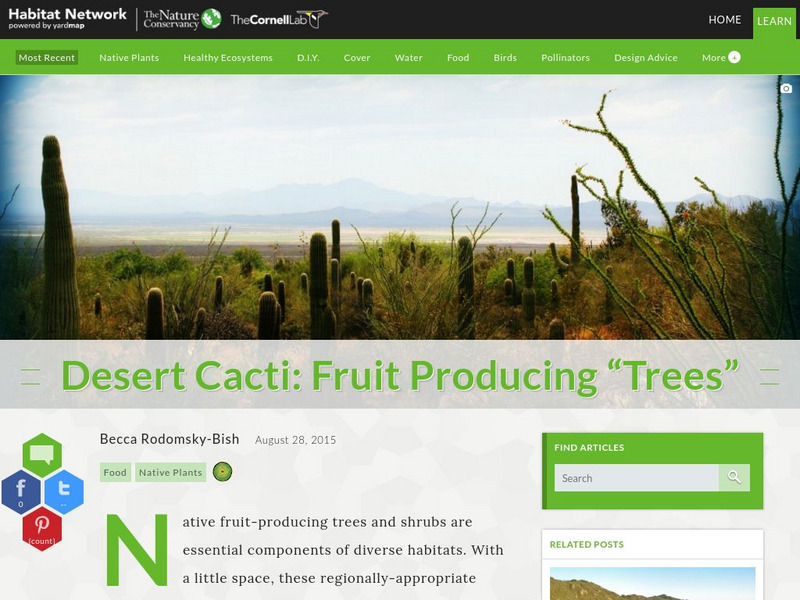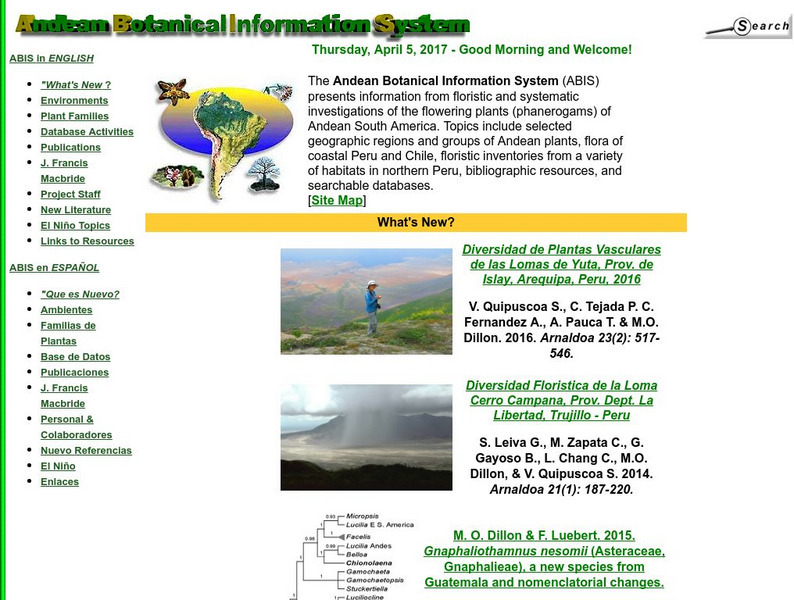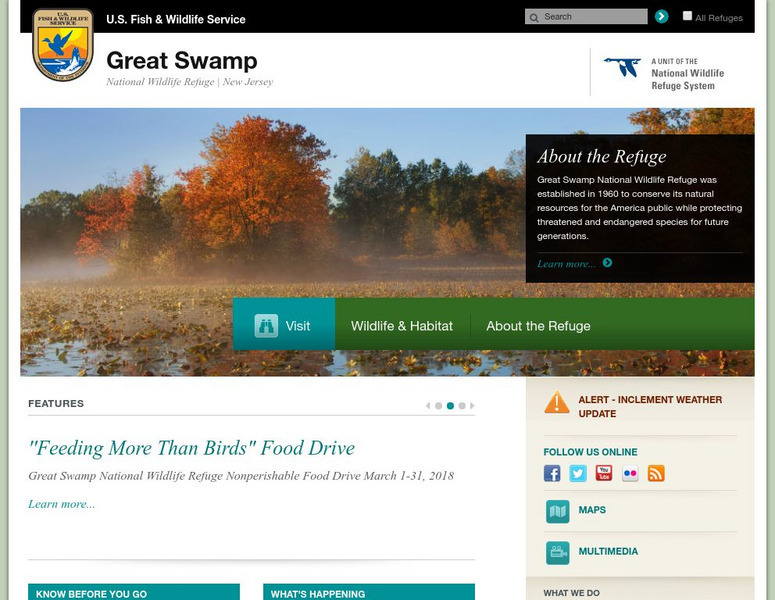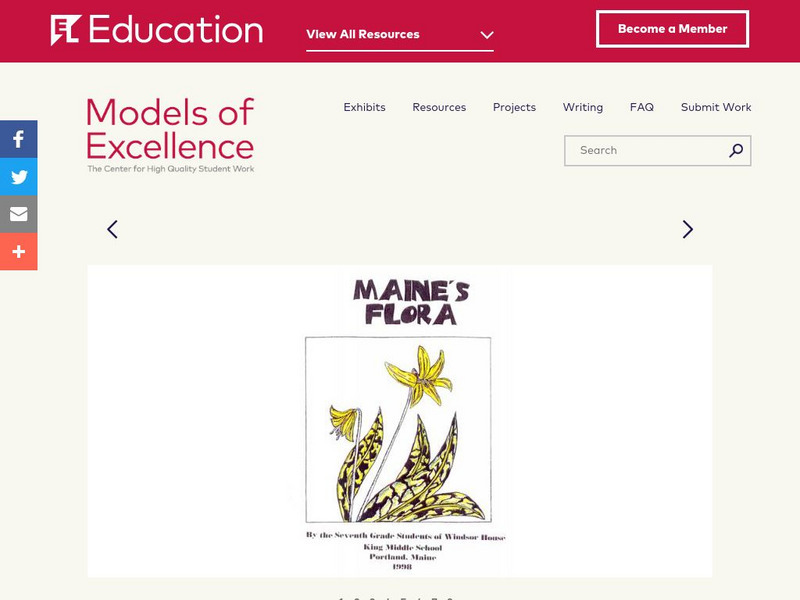Other
Newfoundland Botanical Garden
Presents information on the Newfoundland Botanical Garden located in Newfoundland, Canada. It provides in depth information on each section of the garden.
Other
Suny Stony Brook: Spartina Salt Marsh Ecology
Good illustrated introduction to Spartina salt marsh ecology. Focus on the grasses and their interactions with each other and the animals that inhabit the marsh.
Other
Hull Natural History Society: The Plants of Hull: A Millenium Atlas
This site provides maps and information about the vegetation in Hull, England.
ibiblio
Ibiblio: Web Museum: Jean Antoine Watteau
A brief biography of Jean-Antoine Watteau, along with links to other artists of the period. Includes images and descriptions of some of his art.
Missouri Botanical Garden
Missouri Botanical Garden: Giant Kelp
Learn about forests under the Pacific Ocean! Giant kelp is a forest under the ocean that is divided into layers based on the kind of animal life found there. Kelp is useful in making adhesives, dairy products, and pharmaceutical...
Missouri Botanical Garden
Missouri Botanical Garden: Plants of the Desert
The Evergreen Project reveals such desert plants as the dragon tree, the saguaro cactus, the prickly pear, the desert spoon, the aloe plant, and the like. Illustrated.
TED Talks
Ted: Ted Ed: Can Plants Talk to Each Other?
Can plants talk to each other? It certainly doesn't seem that way: They don't have complex sensory or nervous systems, like animals do, and they look pretty passive. But odd as it sounds, plants can communicate with each...
Pennsylvania State University
Penn State University: Guide Through Eastern Forests
This site from the Penn State University provides photos and brief descriptions of trees found in the eastern U.S. deciduous forests. Scientific and common tree names.
Other
Andy's Northern Ontario Wildflowers
Listed on this page are some northern Ontario wildflowers that occur in the northern deciduous forest in Canada. Provided are descriptions and information about the plants, and numerous pictures.
Other
Branimir Gjetvaj: Sonoran Desert, Arizona
This site has several pictures and links on the flora of the Sonoran Desert in Arizona.
Other
Tijuana Estuary Visitor Center
This site from the Tijuana Estuary Visitor Center has information on the visitor center and the Tijuana Estuary.
American Museum of Natural History
American Museum of Natural History: Giant Kelp O Logy Card
Flip this interactive OLogy card to find fast facts, questions and answers, and other bite-size pieces of information about the giant kelp.
Other
Yahoo! Japan: Multimedia Zukan Encyclopedia
Japanese content! Includes search and browse function to research animals, insects, plants, and birds by names and glossary. Video and audio available as well.
Cornell Lab of Ornithology
Habitat Network: Northeast and Midwest: Fruit Producing Trees
Find out why native fruit-producing trees and shrubs are essential components of diverse habitats.
Cornell Lab of Ornithology
Habitat Network: Desert Cacti: Fruit Producing "Trees"
Find out why native fruit-producing trees and shrubs are essential components of diverse habitats.
Environmental Education for Kids
Eek!: Why Do Leaves Change Color?
Simple, but thorough explanation of fall colors in deciduous forests. Where the color comes from and how trees lose their leaves.
Other
Andean Botanical Information System
Great research from the Andean Botanical Information System into the diverse environments and plants of the Andean region of South America, and particularly Chile and Peru. Available in Spanish or English, photographs and written...
Environmental Education for Kids
Eek!: Forest Plants
Forest plants include trees, shrubs, vines, mosses, ferns, woodland wildflowers, and other green and growing things that can thrive in shade. Read about some of Wisconsin's forest plants.
Australian Broadcasting Corporation
Australian Broadcasting Corporation: Oceans Alive: Jewels of the Sea
This site contains information on both animals and plants of the sea. View the large sea kelps and discover the animals that feed on the kelp.
Other
Kirstenbosch Botanical Garden
This site provides information on the Kirstenbosch Botanical Garden. If you click on the link "virtual tour", a new page will appear with a map of the garden, and details about the contents in the garden.
US Fish and Wildlife Service
Usfws: Great Swamp National Wildlife Refuge
You can learn all about the flora and fauna of the great swamp. A great place to take students, scouts and family.
EL Education
El Education: Maine's Flora
Students gather research, complete field observations, and work with a local arborist to create a field guide to local flora. Information includes illustrations, descriptions, identifying characteristics, and more.
Mocomi & Anibrain Digital Technologies
Mocomi: What Is Flora and Fauna?
Learn the difference between flora and fauna, their importance, and interesting facts.
Curated OER
Merriam Webster: Visual Dictionary Online: Flowers
Labeled diagram of common flowers in bloom.


